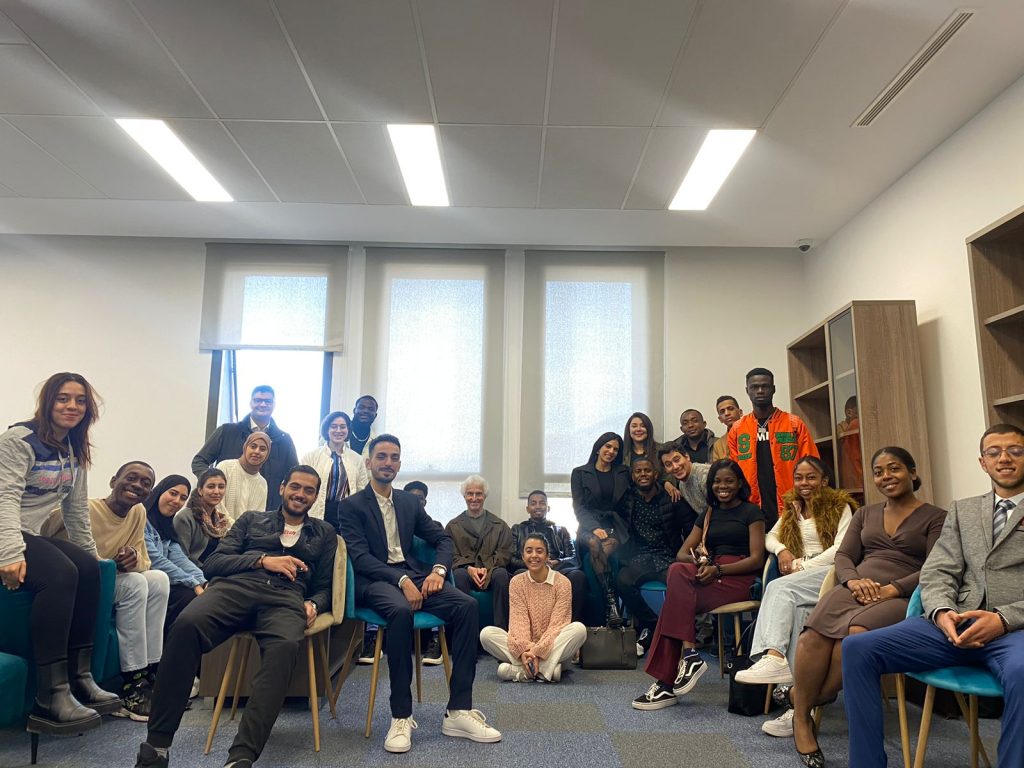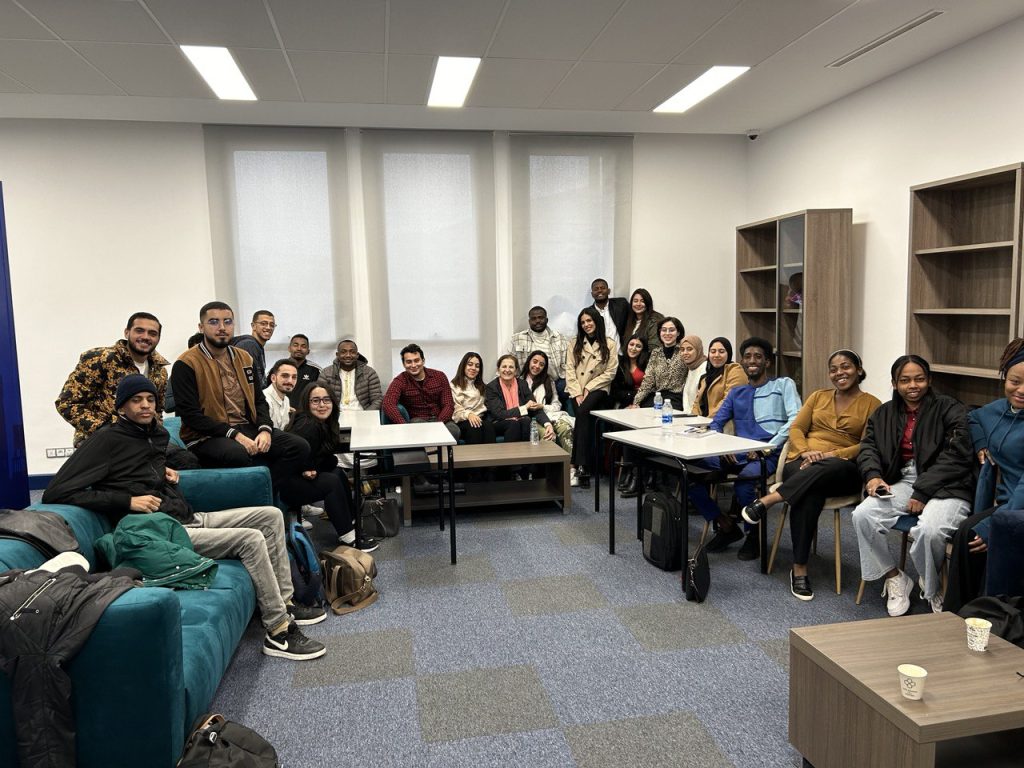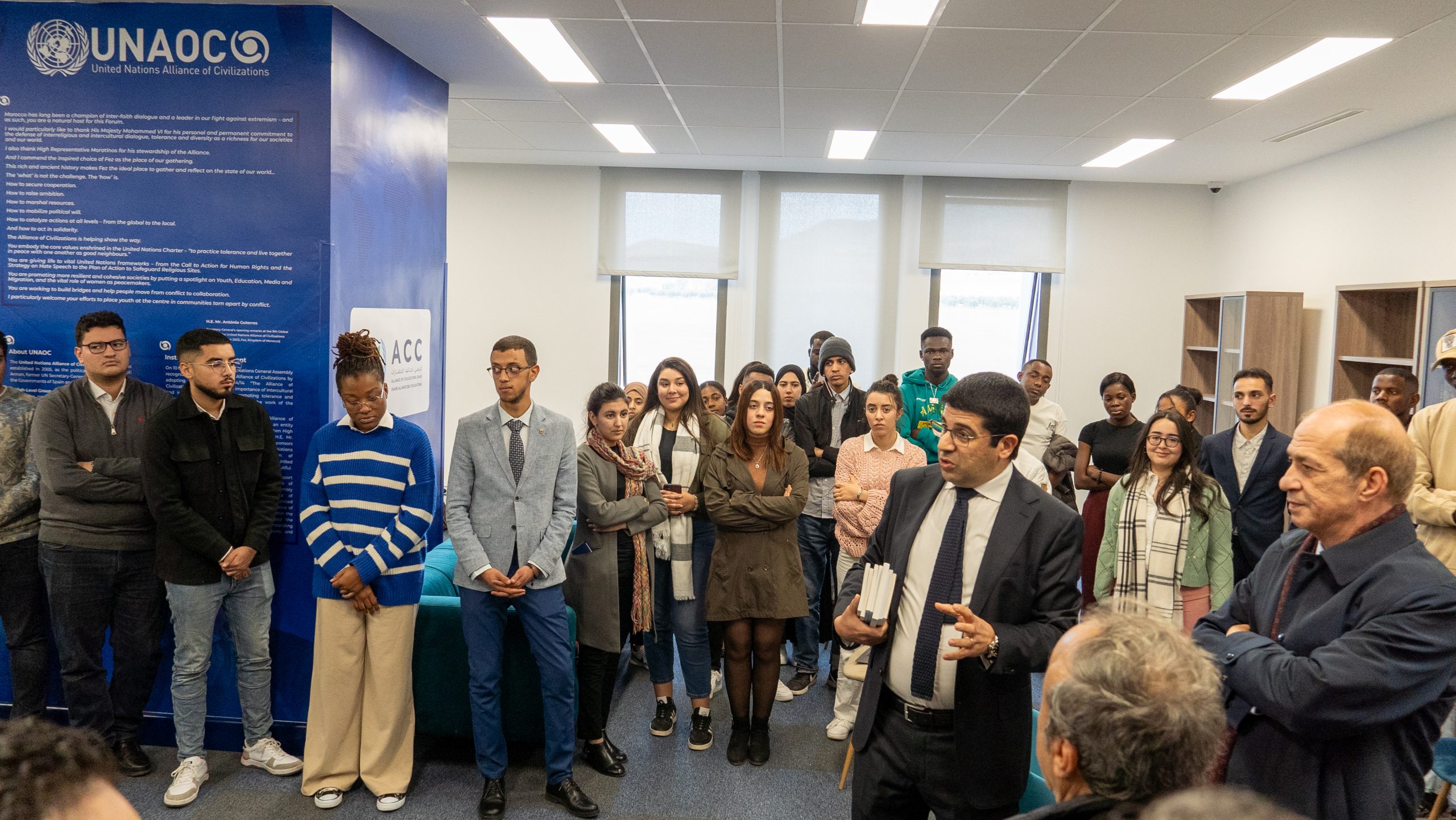It is well-known that a Chair is expected to bring innovation to its specialized field and also to foster a dynamic change in perceptions, visions of the future, and practices that generate valuable outcomes at both individual and collective levels. The current Chair will spare no effort to achieve this objective. In the same spirit, it will establish a parallel yet complementary structure: a Master’s program in research and fundamental studies focusing on Conflict Resolution and the Alliance of Civilizations.


Designed in an interdisciplinary fashion, this Master’s program will be led by instructors from the Faculty of Humanities and Social Sciences, the Institute of Legal and Political Sciences at the EUROMED UNIVERSITY of Fez, and academic institutions worldwide that will be engaged for this purpose. The curriculum will predominantly address critical contemporary issues such as extremism and religion, the state and the complexities of radicalization phenomena, violence and globalization, violence and aggression, and more.
While providing a sound understanding of these phenomena through relevant disciplines, the Master’s program will train students in negotiation, mediation, and crisis resolution methods. Its aim is to equip them with a harmonious balance between the development of scientific knowledge and the acquisition of new skills necessary for shaping a professional career. Thus, this Master’s program will have the following objectives.
In terms of knowledge:
- Mastering the main characteristics of major civilizations.
- Understanding the sources and origins of the divide between the East and West.
- Revisiting the Enlightenment philosophy and the contributions of rationalist Arab philosophers.
- Understanding the relationship between religion and the conditions of the postmodern individual.
- Grasping the challenges inherent in multicultural environments.
In terms of skills:
- Acquiring the legal tools for conflict analysis.
- Mastering the concepts and texts of international law in the field of conflict management.
- Appropriating methods for analyzing radicalized discourse at pragmatic and semantic levels.
- Enabling the acquisition of skills and knowledge related to conflict management and the fundamentals of the alliance of civilizations.
- Promoting the use of analytical tools (legal, political, philosophical, sociological, etc.) for conflicts resulting from religious, cultural, and civilizational disputes.
- Optimizing effective methods for social monitoring, mediation, and negotiation.
- Developing an analytical and interpretive framework for various situations of doctrinal conflicts.
The Master’s program spans two years, with modules of study and analysis during the first three semesters. The final semester will be dedicated to an internship that students will undertake within an international organization like the United Nations under the auspices of the UNAOC.
Some of the key modules in the curriculum include:
- Introduction to the study of civilizations.
- An approach to the religious field.
- Terminology (concepts of crisis, identity, difference, conflict, violence, representation, coexistence, etc.).
- International institutions.
- Research methods in international relations and social sciences.
- Soft and power skills (languages, communication, map-making, emotional intelligence, etc.).
- The United Nations in the face of various crises in the international system.
- Dialogue of cultures throughout history.
- Peace education, and more.
Opportunities:
Graduates of the program will have the opportunity to take up various positions in various institutions:
- Government departments: Ministry of Foreign Affairs, Ministry of Justice, Ministry of the Interior, Ministry of Islamic Affairs, Ministry of Culture, etc.
- Parliament and Regional Councils
- International Organizations
- Strategic Studies Centers and Think Tanks
- Communication agencies for the promotion of cooperation exchanges
Graduates can also pursue further studies at the doctoral level.
